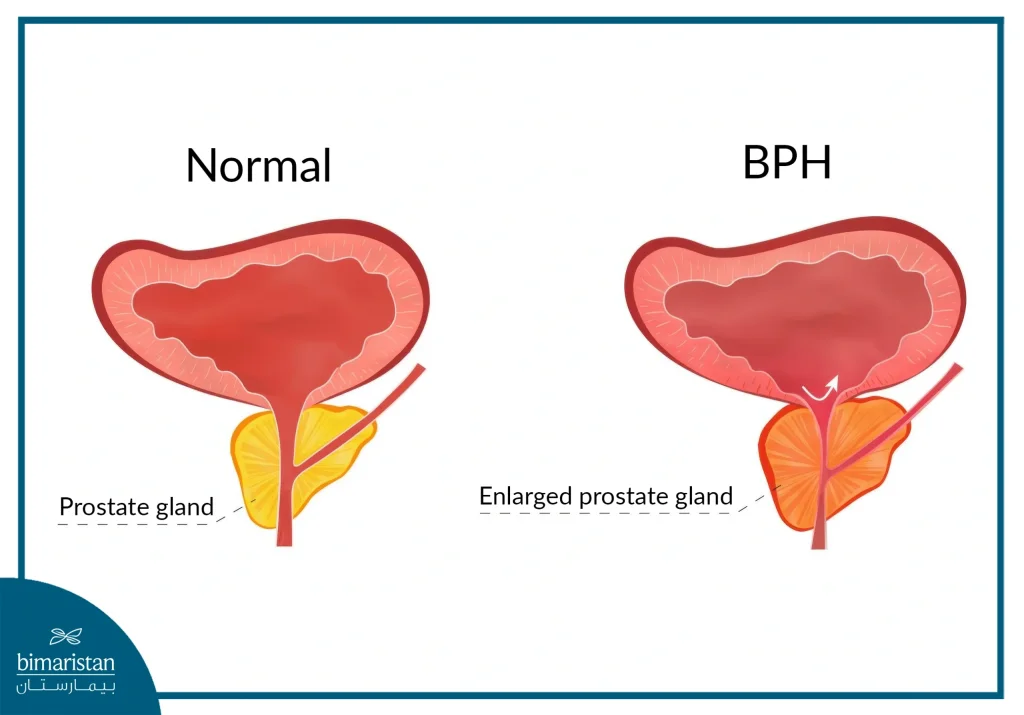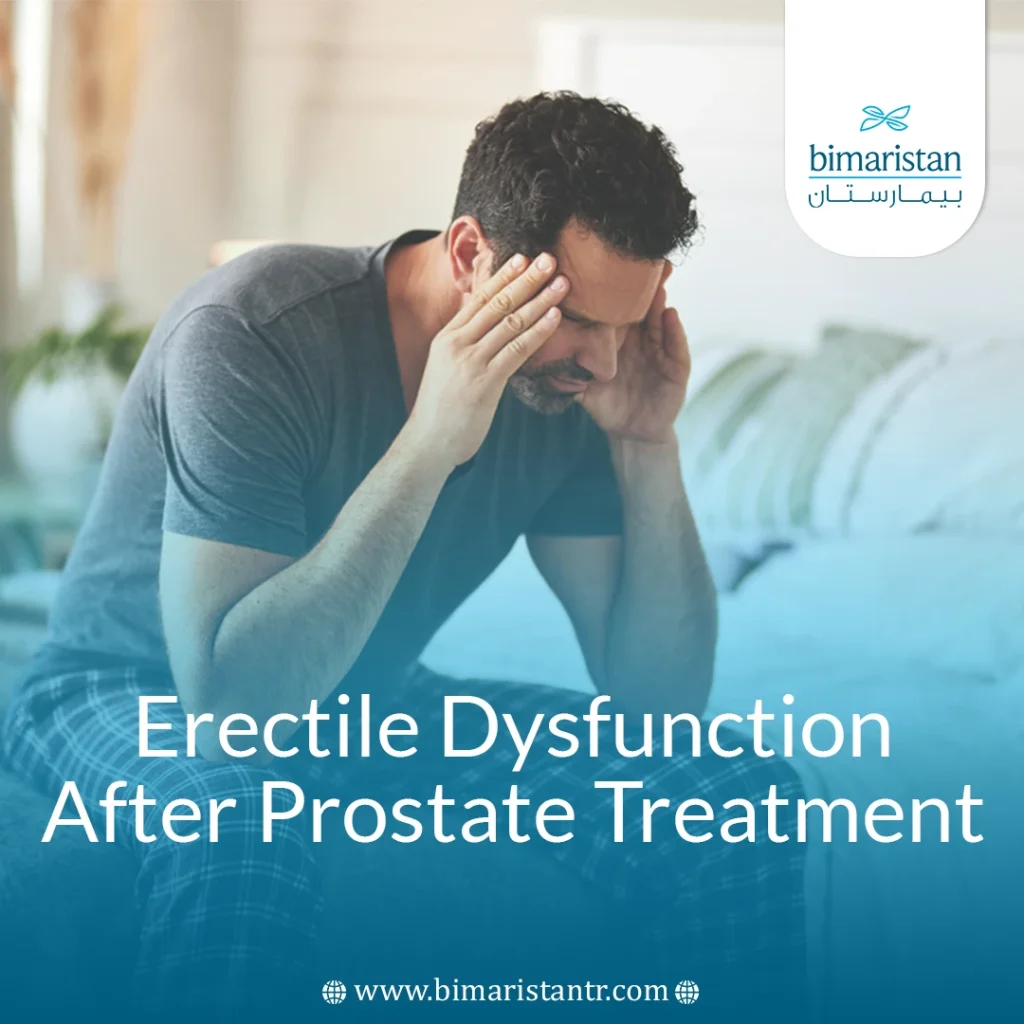Are you facing challenges in your sex life after prostate treatment? You are not alone—many men experience erectile dysfunction after prostate treatment. In this article, we’ll explore the possible causes and available treatments to help you regain your confidence and improve your quality of life.
What is the relationship between prostate treatment and impotence?
The relationship between prostate treatment and impotence is shaped by the impact of treatments used to address prostate issues on men’s sexual function. Many surgical or non-surgical treatments may lead to changes in sexual functioning, so it is important to understand and deal with the condition.
The most commonly used treatments for prostate hypertrophy are surgical removal and radiation therapy, which have both direct and indirect effects on sexual function, which may include erectile dysfunction or loss, decreased libido, and even changes in sensation. It is important to be aware of this relationship and for patients to talk to medical staff about sexual health concerns before starting any treatment.
What causes erectile dysfunction after prostate treatment?
There are many reasons for erectile dysfunction after prostate treatment, including
Common causes
- Damage to surrounding nerves: as a result of surgery or radiation therapy.
- Penile ischemia: due to the effect on blood vessels.
- Stress and psychological effects: anxiety and depression caused by illness and treatment.
- Hormone disruption: Changes in hormone levels as a result of treatment.
- Benign prostatic hyperplasia

Rare causes
- Chronic prostatitis: May lead to chronic pain that affects sexual performance.
- Scar tissue formation: This can impede blood flow.
- Drug-induced impotence syndrome: Some drugs used to treat cancer may lead to side effects that affect sexual function.
- Neurological disorders, such as Parkinson’s disease or multiple sclerosis, may worsen after treatment.
Types of prostate treatments associated with impotence
Prostate treatments that may lead to impotence after prostate treatment include:
- Radical prostate surgery: This is one of the most common treatments affecting sexual function.
- Radiation therapy or chemotherapy: These treatments can affect the integrity of the nerves and blood vessels.
- Hormone therapy: It may reduce the levels of hormones responsible for desire and erections.
- Thermo-frequency treatments or catheterization: may have side effects that affect sexual function.
Is impotence after prostate treatment permanent?
erectile dysfunction after prostate treatment is not necessarily permanent, as there are percentages of spontaneous or partial improvement depending on several factors, such as:
- Age: Age plays a key role in the body’s ability to recover.
- Type of surgery: Some operations may affect the nerves less than others.
- General health: The patient’s general state of health plays a role in recovery.
- Time since treatment: Some men may notice improvement after a period of time.
Pharmacologic and rehabilitative therapy for disability after prostate treatment
There are several treatment options available to improve sexual function after prostate treatment:
- PDE5 inhibitors (such as Viagra and Cialis): help improve blood flow to the penis.
- Penis pumps: Used to stimulate erections by increasing blood flow.
- Behavioral psychotherapy: It helps in dealing with psychological stress and boosts self-confidence.
- Pelvic muscle rehabilitation exercises and techniques: Such as Kegel exercises that enhance erectile control.
Surgical treatment and sexual rehabilitation options
Surgical options for sexual rehabilitation include:
- Penile implant: It is considered effective and has a high success rate, as it helps in achieving an erection.
- Nerve stimulation and neurotherapy: new techniques aimed at improving sexual function and restoring sensation.
- Stem cell or plasma therapy: Newer options that may offer impressive results in improving sexual function.
These options are still being researched and may be promising in some preliminary studies.
Psychological support and therapy
Psychological support is an essential part of treating erectile dysfunction after prostate treatment. Support strategies can include:
- Individual or couples counseling: To help individuals or couples cope with changes in sexuality.
- Support groups: where men can share their experiences and support each other.
- Education: about erectile dysfunction after prostate treatment and understanding that this is a common and treatable issue.
Erectile dysfunction after prostate treatment is not the end of the road, but a challenge that can be overcome thanks to available treatment options and psychological support. If you are struggling with this issue, don’t hesitate to consult a professional to get the right help. Restoring your sex life is possible, and your self-confidence is worth taking care of.
Sources:
- Cancer Research UK. (n.d.). Difficulty getting an erection. Retrieved June 26, 2025
- Prostate Cancer UK. (n.d.). Erectile dysfunction. Retrieved June 26, 2025
